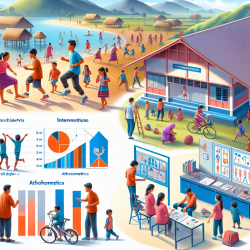Introduction
As practitioners dedicated to improving healthcare outcomes, it is crucial to stay informed about the latest research and policy developments. The research article "End Stage Renal Disease and Medicare" by Joel W. Greer, Ph.D., provides valuable insights into the complexities of managing End Stage Renal Disease (ESRD) within the Medicare system. This blog will explore how practitioners can leverage these findings to enhance their skills and encourage further research.
Understanding the Medicare Context for ESRD
Since 1972, individuals with ESRD eligible for Social Security have been entitled to Medicare benefits, irrespective of age. Despite representing only 1% of Medicare beneficiaries, ESRD patients account for approximately 9% of all Medicare payments. This disproportionate expenditure highlights the need for effective management strategies to ensure equitable care and financial sustainability.
Key Findings from the ESRD Managed Care Demonstration
The research article presents findings from the ESRD managed care demonstration, which evaluated the effectiveness of managed care plans for ESRD patients. The study revealed that managed care sites provided outcomes comparable to, and sometimes better than, traditional fee-for-service models. However, the payment adjustment methods were challenging to implement and did not align well with general Medicare+Choice capitated payment systems.
Implications for Practitioners
Practitioners can draw several lessons from these findings:
- Adopt Data-Driven Approaches: The demonstration highlighted the importance of using robust data to evaluate healthcare outcomes. Practitioners should incorporate data-driven decision-making in their practice to enhance patient care.
- Focus on Quality of Life: Improving patient quality of life and satisfaction should be a primary goal. The study found that managed care improved quality of life scores, underscoring the need for holistic care approaches.
- Consider Risk Adjustment: The research emphasizes the need for risk-adjusted payment models to account for patient variability. Practitioners should advocate for policies that support fair compensation based on patient needs.
Encouraging Further Research
The study also identifies areas where further research is needed, such as developing a case-mix adjustment methodology and improving organ donation efficiency. Practitioners can contribute to these efforts by engaging in research initiatives and collaborating with policymakers to address these challenges.
Conclusion
By integrating the insights from the "End Stage Renal Disease and Medicare" research, practitioners can enhance their skills and contribute to better healthcare outcomes for ESRD patients. To read the original research paper, please follow this link: End Stage Renal Disease and Medicare.










